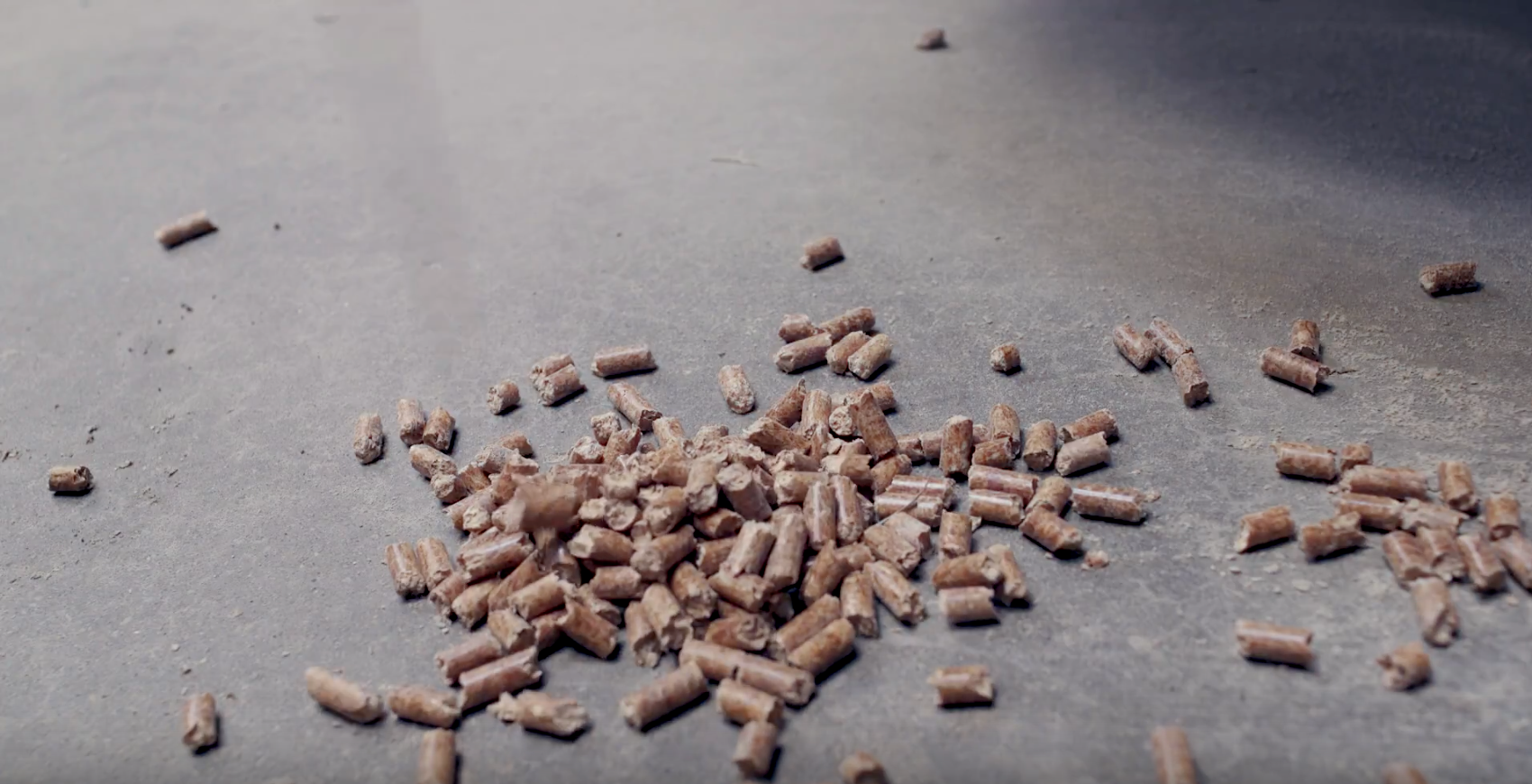|
In this Week's Pellet Wire:
PFI Executive Director Search - Last Day to Apply
We are pleased to announce that Pellet Fuels Institute has opened a search for an Executive Director!
The Pellet Fuels Institute Executive Director Reports to the PFI Board of Directors to fulfill the association's mission. The ED is the key staff member and responsible for communicating effectively with the Board and providing, in a timely and accurate manner, all information necessary for the Board to function properly and to make informed decisions. The ED oversees PFI's fiscal management and oversees the PFI staff, anticipates operating within the approved budget, ensures maximum resource utilization, and maintenance of the organization in a positive financial position. The ED will also work with the PFI Board of Directors, Committees and staff to ensure that the mission is fulfilled through membership, programs, strategic planning and community outreach. The ED is expected to have good written and oral communication skills as well as strong public speaking ability. Other specific job duties follow.
We welcome all references. Please see the full listing here, and direct any prospective applicants to send a cover letter and resume to [email protected] with "PFI ED Job" in the subject line. PFI will consider less than full-time for the right candidate.
Heating and Wood: Encouraging the Use of Wood Pellets in Michigan
Heating with wood often draws images of fall excursions to the forest and crackling fires in a fireplace or wood stove. These are attractive and comfortable images. Even the old smoky outdoor boiler remains popular, although the newer gasification boilers save both money and time.
However, these traditional perceptions can interfere with understanding the advanced wood energy systems that are currently coming into the market. For residential and small business applications, pellet furnaces (different than stoves) are alternatives. For more institutional-sized buildings, or groups of buildings, a wood-chip fueled system is cost-competitive with fossil fuels.
Most residences and small businesses are heated with a furnace, which is an appliance in the basement that pushes either forced air or hot water. Replacing these furnaces with a wood pellet appliance involves higher capital costs. At current fossil fuel prices, pellets are typically more expensive. However, over the life of the appliance, fossil fuel prices may rise substantially, or fluctuate wildly. Pellet prices will likely remain stable. A homeowner will gamble with operating costs no matter which kind of furnace is used.
Pellet markets are currently occupied by those households that value environmentally-friendly technologies or are early-adopters banking on rising fossil fuel costs. Working with these customers to create a bulk delivery operation will make burning pellets as hands-off as fossil fuels. Bulk delivery pellet distributors exist in New England. The Michigan Statewide Wood Energy Team is working to create such an entity in Michigan, too.
Read the full article by Bill Cook on the Michigan State University Extension website.
EIA: Densified Biomass Production Reaches 570,000 Tons in June
The U.S. Energy Information Administration has released the September edition of its Monthly Densified Biomass Fuel Report, reporting that data gathered from respondents indicates they purchased a combined 1.06 million tons of feedstock in June, produced 570,000 tons of densified biomass fuel, and sold 430,000 tons of densified biomass fuel.
According to the EIA, 88 operating manufacturers provided data for the monthly report. These manufacturers had a total production capacity of 11.92 million tons per year and collectively have an equivalent of 1,936 full-time employees.
The data gathered from the 88 respondents shows domestic sales of biomass reached 110,000 tons in June, with prices averaging $147.77 per ton. Exports for the month reached 440,000 tons, with prices averaging 128.45 per ton.
Production of heating pellets reached 117,765 tons in June, with utility pellet production reaching 452,765 tons.
According to the EIA, the U.S. currently has 11.71 million tons of annual densified fuel manufacturing capacity, including 11.99 million tons currently classified as operating or temporarily not in operation. Approximately 193,500 tons of annual capacity is currently estimated to be planned and/or under construction.
On a regional basis, the East currently has 2.41 million tons of capacity, with capacity in the South reaching 9.39 million tons and capacity in the West reaching 904,320 tons.
This story is courtesy of Biomass Magazine.
New Bioenergy Day Video - Northwest Montana
The 2017 Bioenergy Day video has been released! Produced in partnership with the U.S. Forest Service, the video showcases how bioenergy supports the economy and promotes good forest management practices in Northwest Montana.
Please see below for more information on how you can be a part of Bioenergy Day 2017.

Send Us Your Pellet Production Photos!
We want to see photos of what's happening with the pellet fuels industry in your neck of the woods. Send us photos with captions - facilities, retailers, production, appliances, happy customers! We'll run the photos in Pellet Wire.
Follow PFI on Facebook and Connect with us on LinkedIn!
This week, PFI updated its LinkedIn page. We'd like to connect and interact with PFI members and anyone else involved in pellet fuels production!
Here's how you can help us build our online community:
- Follow us on Facebook and LinkedIn!
- Encourage your colleagues and other business associates to follow us.
- Send Carrie Annand news or other ideas to post on LinkedIn.
Host an Elected Official at Your Facility for Bioenergy Day - Oct. 18
 Thank you to all who have registered to host an event for Bioenergy Day 2017! Wednesday, October 18, marks the day for the Fifth Annual Bioenergy Day. Consider inviting an elected official to tour your facility on Bioenergy Day. If you haven't yet signed up, consider inviting an elected official to tour your facility on Bioenergy Day. Whether it's your town's mayor, a state official, a member of Congress, Senator or Governor, Bioenergy Day is the perfect opportunity to introduce government officials to the pellet industry and its many environmental and economic benefits. Thank you to all who have registered to host an event for Bioenergy Day 2017! Wednesday, October 18, marks the day for the Fifth Annual Bioenergy Day. Consider inviting an elected official to tour your facility on Bioenergy Day. If you haven't yet signed up, consider inviting an elected official to tour your facility on Bioenergy Day. Whether it's your town's mayor, a state official, a member of Congress, Senator or Governor, Bioenergy Day is the perfect opportunity to introduce government officials to the pellet industry and its many environmental and economic benefits.
This year, we are especially highlighting the economic benefits of bioenergy. The presence of bioenergy in a community creates jobs, enhances revenue and forest products markets, and reduces waste. Our video on bioenergy, forest products and forestry in Northwestern Montana will illustrate how manufacturers convert leftover fuels into energy.
There are many ways to contribute to Bioenergy Day 2017. We've uploaded our Participation Guide on the site to help you brainstorm the ways to mark Bioenergy Day, with some best practices and sample materials. You can also look around our website, www.bioenergyday.org, to see how other groups have approached Bioenergy Day.
Contact Carrie Annand with any questions on Bioenergy Day 2017 or to register your organization's event. If you are interested in hosting and elected official, Carrie can also help identify and invite one near you.
Have News to Share on Pellet Wire?
We'd love to feature your company's news in a future Pellet Wire! We want to be the first to know your company's recent developments to share them with the wider pellet fuels industry.
Please be in touch with Carrie Annand at [email protected] with information on your company's growth, job openings, promotions or other news.
Join a PFI Committee
We welcome and encourage all interested PFI members to get involved in our committees. There are many opportunities to help steer the association. No matter where your expertise and interests lie, we have a committee that will suit you. Help us plan our next conference, shape our policy agenda, lead communications outreach or grow the PFI Standards Program. Visit PFI's website for more information.

Upcoming Industry Events
October 2-4, 2017: International Conference on Biofuels and Bioenergy
October 12-13, 2017: Biomass & Bioenergy Summit
October 18, 2017: Bioenergy Day
|
Connect with PFI
PelletHeat.org
Facebook
Twitter
LinkedIn
Join PFI
Fuel Availability
Are you a PFI member pellet manufacturer or distributor that has fuel available? Email [email protected] to have your listing updated or added to the PFI website.
Industry News
UGA Study Shows Wood Pellets Feasible in Power Production, but Costly
Atlanta Business Chronicle
Biomass-produced electricity can be produced in the United States for about the same cost as other renewable sources of energy, according to a new study conducted by The University of Georgia.
However, wood pellets also would require the same tax credits and other government subsidies needed to make solar and wind energy competitive with coal, the study concluded.
"It's just not economically feasible to use wood pellets in energy production," said Bin Mei, associate professor of forest resource finance and economics at UGA's Warnell School of Forestry and Natural Resources.
Wood pellets, a major forest product in Georgia, are used heavily in European power plants to comply with government mandates to reduce fossil fuel emissions, Mei said. But that energy production is heavily supported by government subsidies.
Read Full Article
Report: Italian Wood Pellet Consumption Expected to Grow
Biomass Magazine
Italy recently filed a report on its wood pellet market with the USDA Foreign Agricultural Service's Global Agricultural Information Network, predicting its use of wood pellets will reach 5 million metric tons in 2020.
According to the report, Italy currently consumes approximately 3 million metric tons of wood pellets annually, with domestic consumption accounting for 96 percent of total use. The use of wood pellets is currently expected to increase, reaching 5 million metric tons by 2020.
Only 15 percent of domestic pellet demand in Italy is currently met by domestic production. The country currently imports approximately 85 percent of the pellets it consumes. Last year, Italy imported 1.66 million metric tons of wood pellets, primarily from Austria, Croatia, Germany, Slovenia, France and Czech Republic.
Read Full Article
Will American Forests Fuel UK Coal Phaseout?
E&E News
The United Kingdom's break with coal may intensify the debate over a ready replacement: wood pellets from southeastern U.S. forests.
An environmental group opposed to the burning of wood pellets for fuel warned that fueling power plants with wood isn't a clean alternative to coal, which Prime Minister Theresa May said the United Kingdom will phase out by 2025.
"A reduction in global coal burning would benefit the environment, but not if coal is swapped for wood pellets," said David Carr, general counsel for the Southern Environmental Law Center, in a news release yesterday. "Burning wood pellets still produces vast amounts of carbon pollution and threatens our Southern forests."
The SELC said it worries that increased demand for wood pellets in the U.K. will mean more trees cut down in Georgia, South Carolina and Virginia, although most wood pellets are made with residue from trees cut down for other purposes.
Read Full Article
Coal No More: Pushing for Biomass Conversion
Canadian Biomass
Transitioning away from coal. That was the main theme at Day One of this year's WPAC conference in the nation's capital.
Executive director of the Wood Pellet Association of Canada (WPAC) Gordon Murray said the industry received the confirmation it needed this morning regarding the government's commitment to reducing GHG emissions and making bioenergy more widespread across Canada.
"All of our focus, being here in Ottawa, has been to educate not only the producers, but the regulators, government people, and the power utilities who did show up in good numbers, about the benefits of biomass here in Canada," Murray said. "We're not going to have a successful industry unless we can demonstrate to the public and the governments how sustainable [biomass] is."
Read Full Article
|